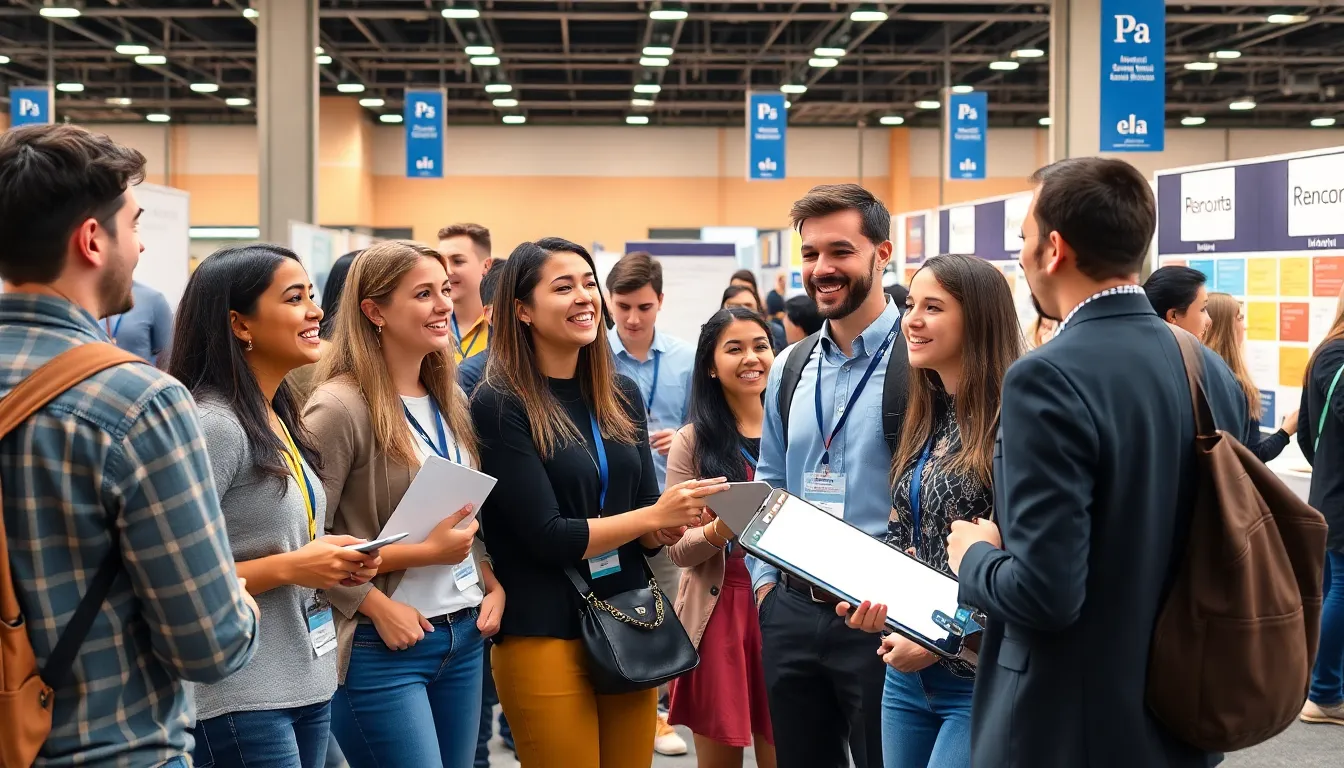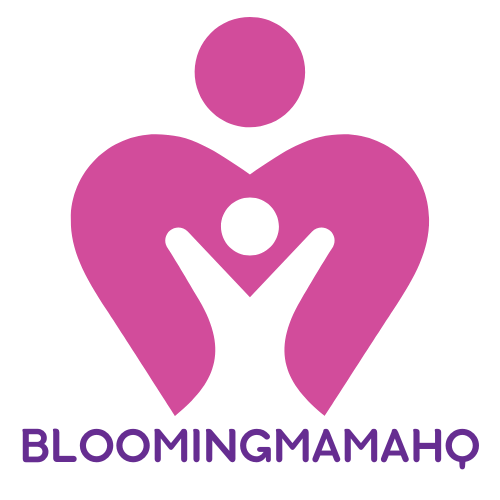College career fairs are like the speed dating of the job world. Students don their best outfits and brave the crowded halls, all in hopes of impressing potential employers. But let’s face it, navigating through a sea of booths and brochures can feel a bit overwhelming. Who knew finding a job could involve so much mingling and awkward small talk?
Table of Contents
ToggleOverview of College Career Fairs
College career fairs serve as vital networking events. They connect students with employers seeking fresh talent. Participants dress professionally to make a strong impression. Events often occur in large venues, making navigation challenging for attendees.
Employers set up booths to provide information about their companies. Job seekers approach these booths to learn about available positions and internship opportunities. Engaging conversations often lead to valuable connections and insights. Attending these fairs allows students to gather information about industry trends and company cultures.
Mixing and mingling in crowded spaces can feel daunting. Students may encounter hundreds of peers and representatives within a few hours. Many attendees report feeling overwhelmed by the sheer volume of interactions. Students must come prepared with resumes and practice their elevator pitches for effective communication.
Networking at these events lays the groundwork for future job opportunities. Some students receive on-the-spot interviews, showcasing their qualifications directly to recruiters. Other participants value the chance to gather industry insights and career advice.
While college career fairs can feel intense, effective preparation enhances the experience. Researching companies beforehand increases confidence when engaging in conversations. Practicing responses to common questions facilitates smoother interactions. Preparing thoughtful questions helps maintain engaging dialogues with potential employers.
Success at career fairs often depends on initiative and approach. Demonstrating enthusiasm and proactivity stands out to recruiters. Attending these events can significantly impact a student’s career trajectory.
Benefits of Attending College Career Fairs

College career fairs provide valuable advantages for students entering the job market. They facilitate networking and offer critical exposure to employers.
Networking Opportunities
Networking opportunities abound at career fairs. Students can meet industry professionals and engage in conversations that foster relationships. Connections made at these events often lead to internships or job opportunities. Attendees also gain access to industry insights, offering guidance on trends and hiring practices. Engaging with various employers, students expand their professional network significantly. Meaningful interactions can occur even in brief exchanges, leading to potential referrals down the line.
Exposure to Employers
Exposure to employers occurs directly at career fairs. Companies from diverse industries showcase job openings and internships, allowing students to explore multiple career paths. Attendees learn about different organizational cultures and values firsthand. Engaging with recruiters offers deeper insights into businesses beyond online job postings. Students also showcase their skills and enthusiasm in person, differentiating themselves from typical applicants. Such interactions can result in immediate follow-up opportunities, including interviews or informational sessions.
Preparing for College Career Fairs
Preparation boosts a student’s confidence and effectiveness at career fairs. Specific steps enhance the experience and increase the chances of success.
Researching Attending Companies
Identify companies attending the fair ahead of time. Reviewing company websites helps students understand corporate cultures and open positions. Focus on tailoring conversations based on research findings. Knowing specific details about employers can spark relevant discussions, showcasing genuine interest. Create a list of preferred companies to prioritize interactions during the event. Engaging with target employers increases the chances of memorable connections at crowded venues.
Creating Effective Resumes
Develop a tailored resume for each fair to highlight relevant skills and experiences. Using clear headings and bullet points improves readability. List educational achievements, internships, and work experience prominently. Ensuring that each entry aligns with the desired position makes a resume stand out. Keep the format professional and concise; one page suffices for most students. Bring multiple copies to distribute to recruiters, demonstrating preparedness and professionalism. Personalizing resumes for specific roles significantly enhances the likelihood of favorable impressions.
Strategies for Success at College Career Fairs
Maximizing opportunities at college career fairs requires effective strategies. Engaging with recruiters and following up afterward can significantly impact a student’s success.
Engaging with Recruiters
Effective interactions with recruiters begin with a confident approach. Students should introduce themselves clearly and express interest in the company. Maintaining eye contact and using a firm handshake creates a positive first impression. Asking thoughtful questions about the company and its culture demonstrates preparation. Sharing relevant experiences and skills makes conversations engaging. Active listening to recruiters’ insights about job openings or internship opportunities helps students build rapport. Remembering key details about conversations can aid in future follow-ups. Becoming memorable as a candidate lays the foundation for potential opportunities down the line.
Following Up After the Fair
Timely follow-ups can enormously enhance a candidate’s visibility. Sending personalized thank-you emails to recruiters showcases professionalism and gratitude. Mentioning specific conversations can help reinforce personal connections. Following up within 24 to 48 hours maintains engagement and keeps a candidate fresh in a recruiter’s mind. Requesting additional information about job openings or further discussions can demonstrate continued interest. Utilizing platforms like LinkedIn facilitates connections and builds professional networks. Tracking all interactions ensures students manage their follow-ups effectively. Practicing these steps can lead to fruitful discussions and future career prospects.
Navigating college career fairs can be a transformative experience for students. With proper preparation and a proactive approach they can turn these crowded events into valuable opportunities. The connections made and insights gained can shape their career paths in significant ways.
Emphasizing professionalism and genuine engagement helps students stand out among the competition. By following up promptly and effectively they can reinforce the relationships built during these events. College career fairs aren’t just about finding immediate job offers; they’re about laying the groundwork for a successful future in the professional world.



